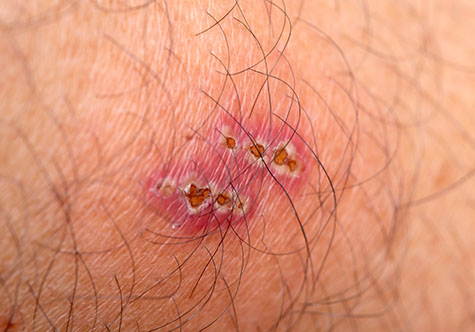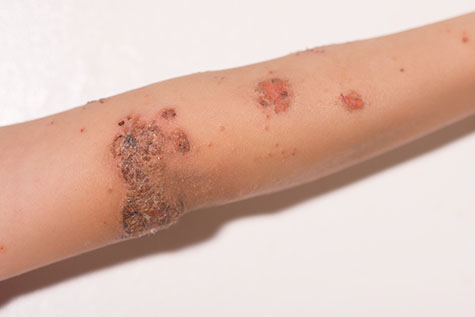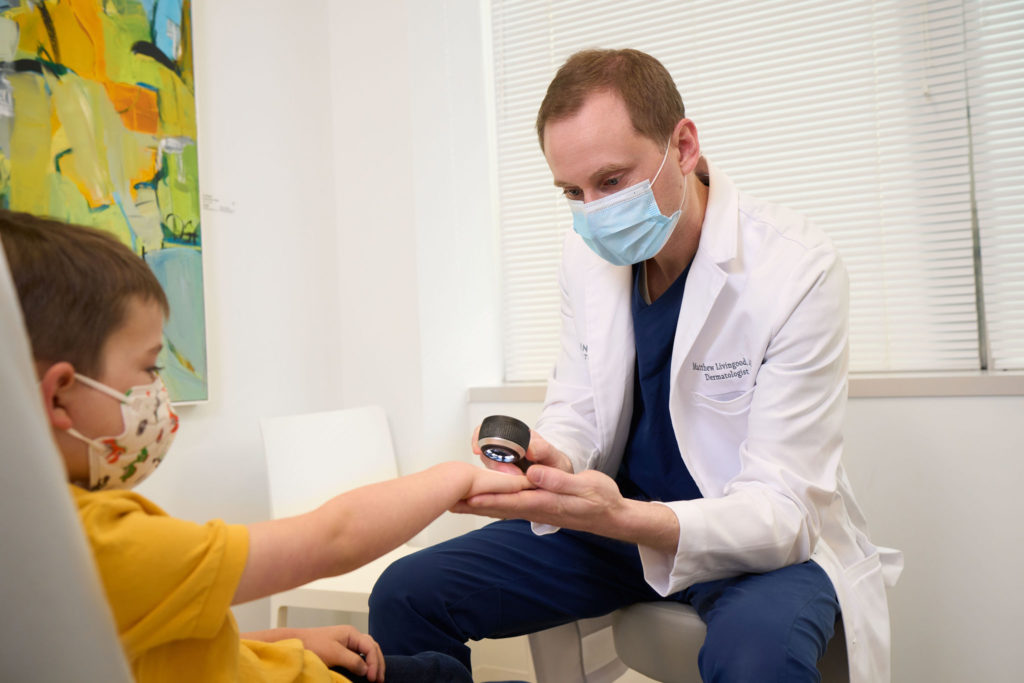What Causes Skin Infections?

Skin infections may be caused by bacteria, fungi, viruses, or parasites. Some common types of skin infections include:
- Shingles
- Molluscum contagiosum
- Impetigo
- Warts
- Athlete’s foot
- Nail fungus
- Ringworm
- Scabies
- Lice
Who Gets Skin Infections?
Virtually anyone can get a skin infection, but you may be predisposed to certain infections at baseline or due to particular situations. For example, you may be more likely to get a wart or athlete’s foot if you walk barefoot in a locker room or near a pool. Children are also more likely to face infections like warts because they have not yet developed a fully mature immune system. Some types of infections, like lice or scabies, tend to pass from person-to-person and are more common in settings like schools or nursing homes where individuals find themselves often in close continual proximity to others.
How Can I Prevent Skin Infections?
Following healthy hygiene practices can help you avoid many types of skin infections. Wash your hands or use hand sanitizer regularly to avoid spreading infection. If you frequently use locker rooms or spend time in gyms or at pools, always wear shower shoes and wash your hands thoroughly after using shared equipment. Change out of damp or sweaty clothes promptly. Avoid sharing towels, hairbrushes and combs, or other personal care items. Finally, keep frequently handled items such as keyboards or your phone clean.

Why Treat a Skin Infection?

Some types of skin infections can resolve on their own or with simple over-the-counter remedies. However, others require treatment from a qualified dermatologist. This is important to prevent unnecessary discomfort, worsening or serious symptoms, or spreading of the infection to the rest of the body or to others. Some types of skin infections, such as ringworm, lice, or molluscum, are highly contagious. Treating these infections protects your health as well as the health of those around you.
How Can I Treat a Skin Infection?
Treatment for a skin infection varies depending on the type of infection present. A board-certified dermatologist at Arlington Dermatology will tailor the treatment based on the type of infection.
Schedule an Appointment
If you are battling with a skin infection, you should see a board-certified dermatologist rather than waiting for the infection to resolve on its own. This may minimize discomfort or prevent spreading of the infection on the rest of your body or to others.
To schedule an appointment with a board-certified dermatologist, please call Arlington Dermatology or contact us online.





